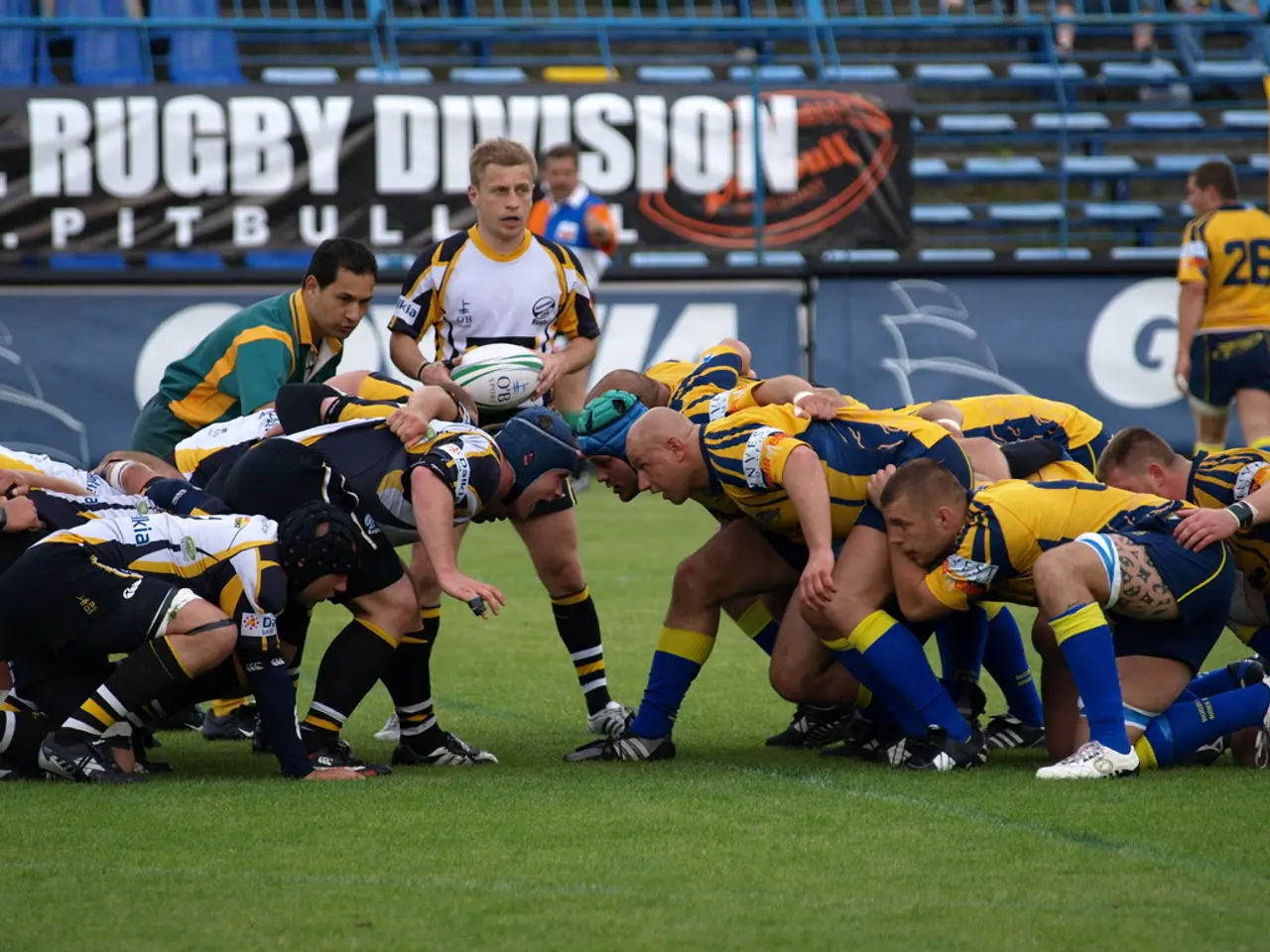Social unrest and belligerence in rugby leagues mirroring broader societal standards
In the world of Rugby League, the influence of social norms on aggression is a complex issue that affects both player behavior and fan attitudes.
Fan Behavior
The expectations and social norms surrounding masculinity and aggression in Rugby League often shape the behavior of fans. They anticipate players to exhibit toughness and resilience, which can lead to a more hostile atmosphere during matches [1].
Player Conduct
Players in contact sports like Rugby League are frequently socialized to accept and internalize norms of aggression and toughness. This pressure to conform can significantly impact their on-field behavior [1].
Societal Impact
Rugby League, particularly in countries like New Zealand, reflects and reinforces cultural values such as strength, resilience, and family involvement. While the sport can have a positive impact on communities, aggressive behavior can negatively affect its perception and experience [2].
Conclusion
Understanding the dynamics of social norms on aggression in Rugby League is crucial for promoting a positive and respectful culture within the sport. Encouraging thoughtful dialogue is essential for addressing both aggression in players and fan attitudes.
Awareness can drive change towards a more inclusive and respectful playing field. Further research into sport culture and aggression is needed to develop better strategies for promoting safety and respect in athletic environments.
Coaches play a key role in instilling values of sportsmanship in their players. Encouraging empathy among players can diminish violence in sport, and long-term consequences for players and fans due to the sport's aggressive nature include injuries, long-term health issues, and mental health struggles.
Fan conduct can be influenced by the actions and attitudes of players. High-profile incidents of fan violence have occurred in some rugby matches, which can deter families from attending games. Cheers and jeers from fans can escalate tensions during matches, and some argue that this acceptance may teach young fans that aggression is a normal reaction in competitive situations.
Discussions about aggression in rugby often spark heated debates. Some argue that physicality is a core element of the sport, while others worry that this perception promotes a harmful environment. Acknowledging these underlying themes and engaging in honest conversations about them could change perceptions and foster a more positive and respectful culture in Rugby League.
Sources:
[1] Kerr, D., & Hargreaves, J. (2010). Masculinity and sport: Theorizing men, masculinities, and sporting cultures. Routledge.
[2] Whitson, S. (2015). The Rugby League World: Globalizing the Game. Routledge.
Fans in Rugby League often expect and support players to display toughness and aggression, leading to a potentially hostile environment in games.
accepts and internalizes norms of aggression and toughness in Rugby League, which can significantly impact their on-field behavior.








